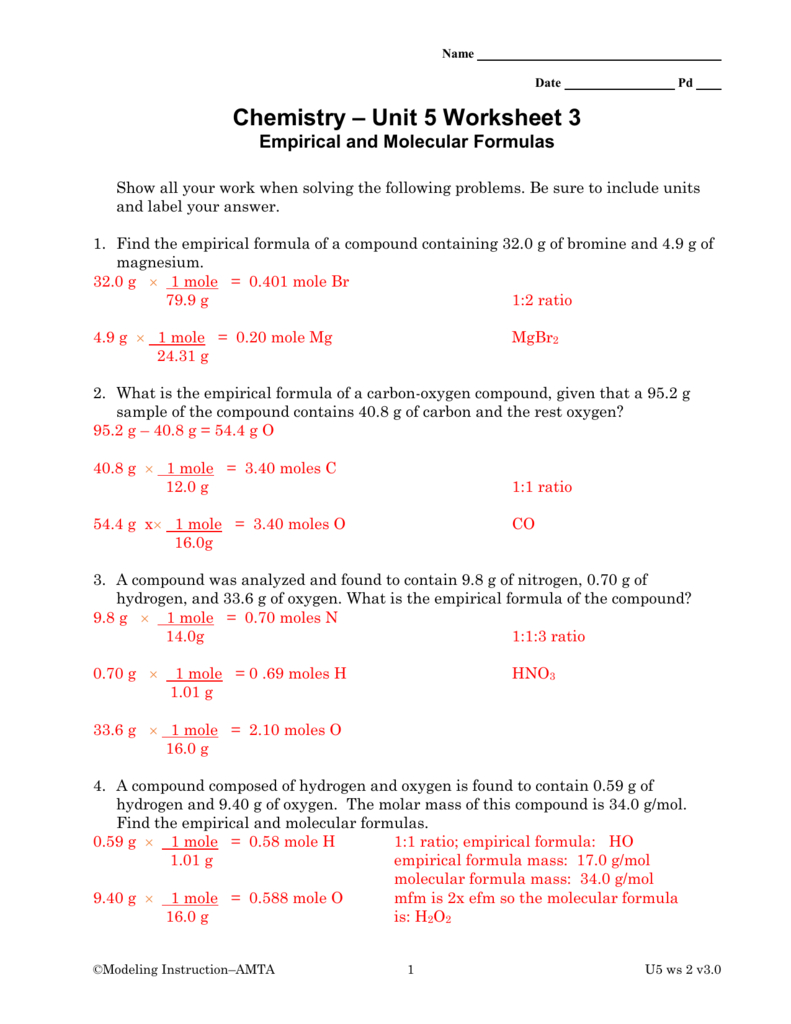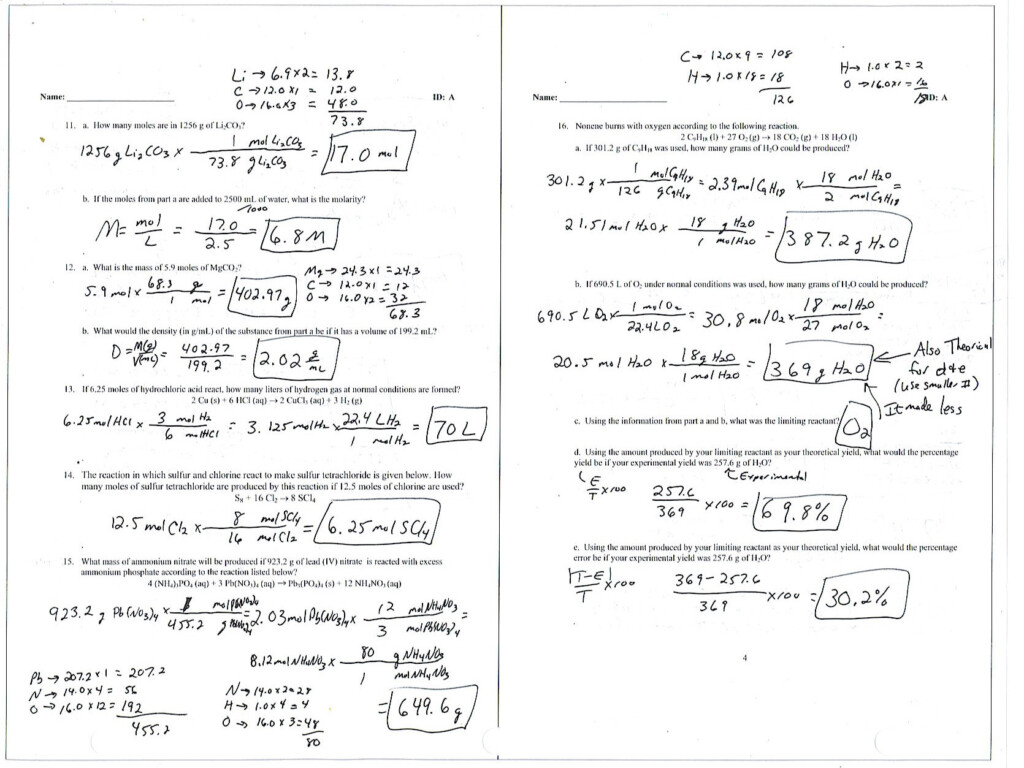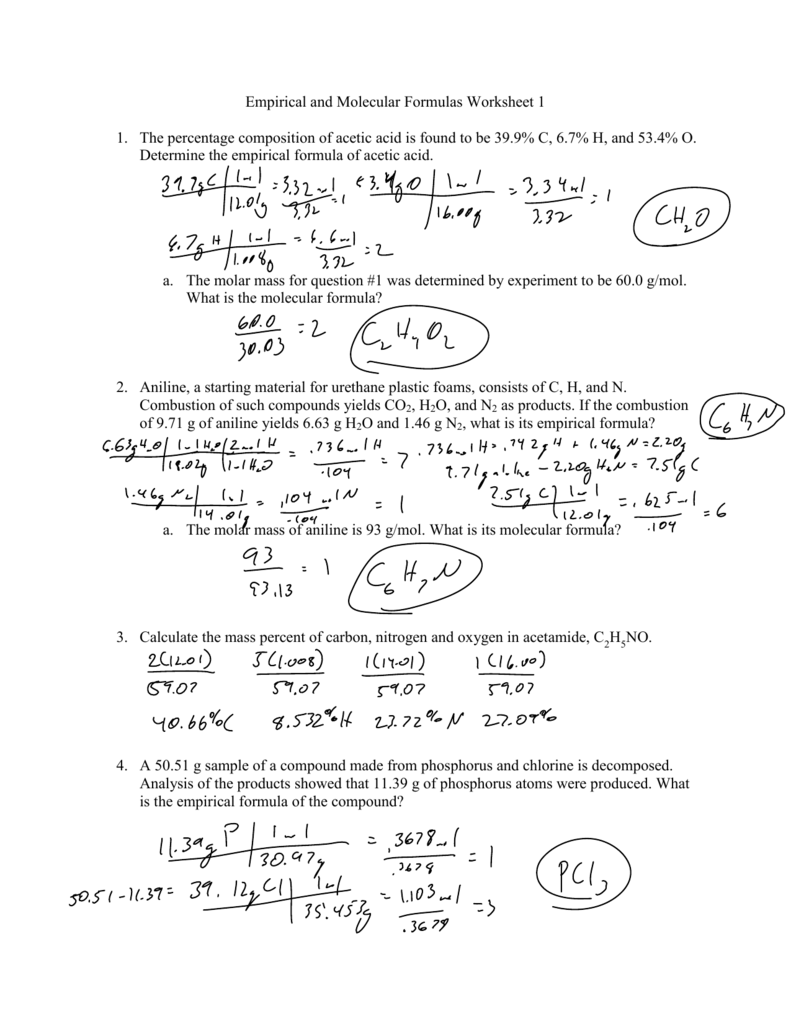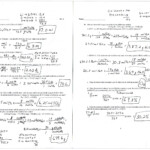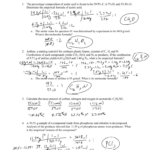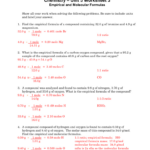Chemistry Empirical And Molecular Formulas Worksheet Answers – If you’re looking for Chemistry Worksheet Answers, you’ve come to the right place. This article will teach you about the different branches of Chemistry, including identifying molecules, chemical reactions and electroneutrality. You’ll also learn how to answer questions about solid state change.
Identifying molecular compounds
A molecular compound is a mixture of two or more elements, usually non-metals. Many compounds do not contain ions but are composed of neutral molecules. Covalent compounds, on the other hand, are created when two or more elements share electrons. This is known as covalent bonding, and it will be covered in greater detail in a subsequent module. Identifying molecular compounds is made easier by using their physical properties. For example, compounds beginning with “H” are acids, and those made of only carbon and hydrogen are called hydrocarbons. These compounds have special nomenclature. More electropositive elements are listed before electronegative ones, and more electronegative elements are given -ide endings.
Names of molecular compounds must include the number of atoms of each element. The prefix is dropped if the molecule contains only one atom from a particular element. However, if the molecule contains two atoms from a different element, it will be prefixed. The rule of a- is used to denote binary molecular compounds. This means there are more than one atom of a particular element.
Chemical reactions
Chemical reaction refers to the process of joining different elements or compounds to create a new one. This is also called synthesis. In this process, multiple simple substances combine under specific conditions to form a complex product. This is the result: carbon dioxide and water. Heat is required for the process of synthesis. This fact should be known by students when they complete a worksheet on chemical reactions.
Every day chemical reactions occur. However, many people do not understand how they work. They involve the breaking of bonds between substances. The process uses energy to form and break the bonds. The change in structure results in a different substance, but the amount of matter is the same.
Nomenclature molecular
The properties of different compounds are described using molecular nomenclature. A substance that contains carbon and hydrogen is called a hydrocarbon. A compound known as an alkane has a single carbon-carbon bond and the general formula CnH2n+2. Many fuels require alkanes. Alkane is also used for substances that have a straight carbon chain.
Molecular nomenclature in Chemistry worksheets cover the element, compound, and formula names. Some worksheets even cover the naming ionic compounds. This is an excellent way to get started learning chemistry. You can also use it to review what you have already learned. It will allow you to remember chemical patterns and the names of compounds. It will make it easier to remember the names of the chemicals when you are in chemistry class.
